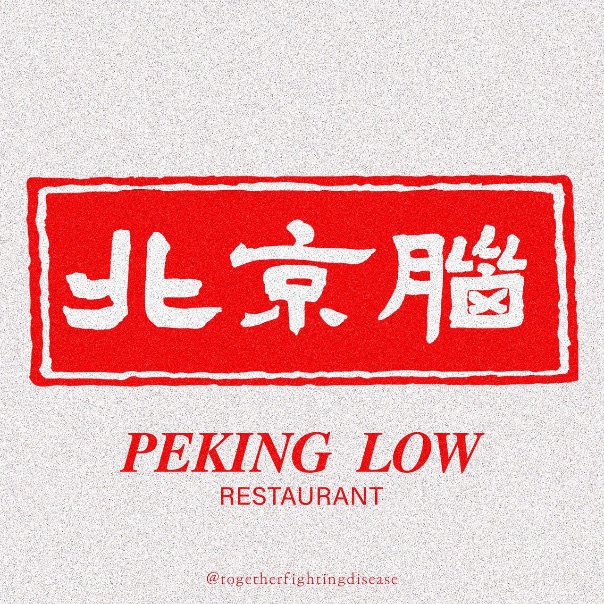Instant divorce
Board in front of a Hūnyīn dēngjì chù 婚姻登记处 ("marriage registration office") in Chongqing, China:

(source)
Read the rest of this entry »
Quarantine Cats
Some forms of religious observance have increased during our time of social distancing, especially this one:

Read the rest of this entry »
Noam'n copies
This is a guest post by Corey Miller.
Sometime in the course of my Zoom Russian class, I brought up Chomsky. I thought enough to say /xomski/, but the teacher surprised me when he said /naum/. I checked out his Russian Wikipedia entry and sure enough it says Ноам (Наум). I must say one of the advantages of Zoom language class is that you can Google (translate)—for the serious student I think it’s more enrichment than cheating.
Read the rest of this entry »
Visual mondegreen?
[This is a guest post by Stephen Plant]
I came across 'connorant' the other day, as in “gannets, connorants, vultures” in Ulysses. It was on the Guardian website. In my Penguin copy of Ulysses (p 526) it's spelt 'cormorant' (perhaps editions differ?). There are a surprising number of references to 'connorant' on line. I suppose the Ulysses connorants have a common ancestor, but the word connorant crops up in scientific journals too — here and here.
Read the rest of this entry »
Coronavirus slang and the rapid evolution of English
People describe the experience of living through COVID-19 lockdowns and extreme social distancing as being "weird", "strange", "unsettling", "disturbing", and so on. As such, the current circumstances give rise to all sorts of new expressions to express their feelings and activities which are so different from "normal" times, one of the most common terms for what we're going through often being called "the new normal".
Jason Kottke, meister of one of the most venerable blogs, kottke.org, has written about these changes in "Covid-19 Slang and How Language Evolves Quickly in Stressful Times" (5/13/20). He draws on two other articles. From Tony Thorne's "#CORONASPEAK – the language of Covid-19 goes viral – 2", language and innovation (4/15/20), he garners the following:
Read the rest of this entry »
Khmer historical phonology
[This is a guest post by John Whitman]
I have a Thai student writing a dissertation on Khmer historical phonology who wrote a qualifying paper using the Zhenla Fengtuji 真臘風土記, a late 13th century gazetteer on Cambodia written by one Zhou Daguan, who was sent to the Angkor court as an emissary. The most cited source on this text is a 1951 translation by Pelliot There is a more recent English translation by Harris (2007), but it relies on Pelliot for linguistic matters. Pelliot identifies and transcribes 37 of the 44 Khmer words in the text.
Like Chinese (but probably slightly later), Khmer was undergoing loss of its voicing distinction in obstruents, but in a different way: Old Khmer voiceless obstruents became implosives, and voiced obstruents voiceless. For reasons that he doesn’t explain very well, Pelliot assumed that Zhou was using early Mandarin values for his Chinese transcription characters, with aspirated Chinese initials representing Old Khmer voiceless initials, and unaspirated initials to represent OK voiced initials. This leads to chaotic correspondences with the Khmer material.
Read the rest of this entry »
Resurrection in Herzliya
News sources around the world reported recently on a tragedy — "Officials: Chinese Ambassador to Israel Found Dead in Home", Associated Press 5/17/2020:
JERUSALEM — The Chinese ambassador to Israel was found dead in his home north of Tel Aviv on Sunday, Israel’s Foreign Ministry said.
Israeli Police Spokesman Micky Rosenfeld said the ambassador's death was believed to be from natural causes.
Du Wei, 58, was appointed envoy in February in the midst of the coronavirus pandemic. He previously served as China’s envoy to Ukraine. He was found dead at the ambassador's official residence in Herzliya.
But if you read it on Israel Hayom (or other Hebrew sources) via Google Translate, you'll get a different picture:
Read the rest of this entry »
Chatbot comedy
Unfortunately, most customer service chatbots are not nearly this good:
Customer Service Calls pic.twitter.com/CbU67Hpfts
— Jeff Wright (@JeffRightNoww) May 19, 2020
A word for parents who lose an only child
It is well known that the PRC had a one-child policy from 1979-2015. This means that, for most Chinese children born during this period, they would have no brothers and sisters. As such, they were inestimably precious in a country that lacks adequate social benefits for people to live on after retirement, but who — in large measure — had to rely on their lone offspring to support them. Such a practical consideration was matched by the psychological devastation experienced when a couple lost their sole, beloved child.
"Chinese parents who lose their only child — a tragedy so common there’s a word for it",
Read the rest of this entry »



